#Culture
From The MuslimMatters Bookshelf: Palestinian Literature For All Ages
Published
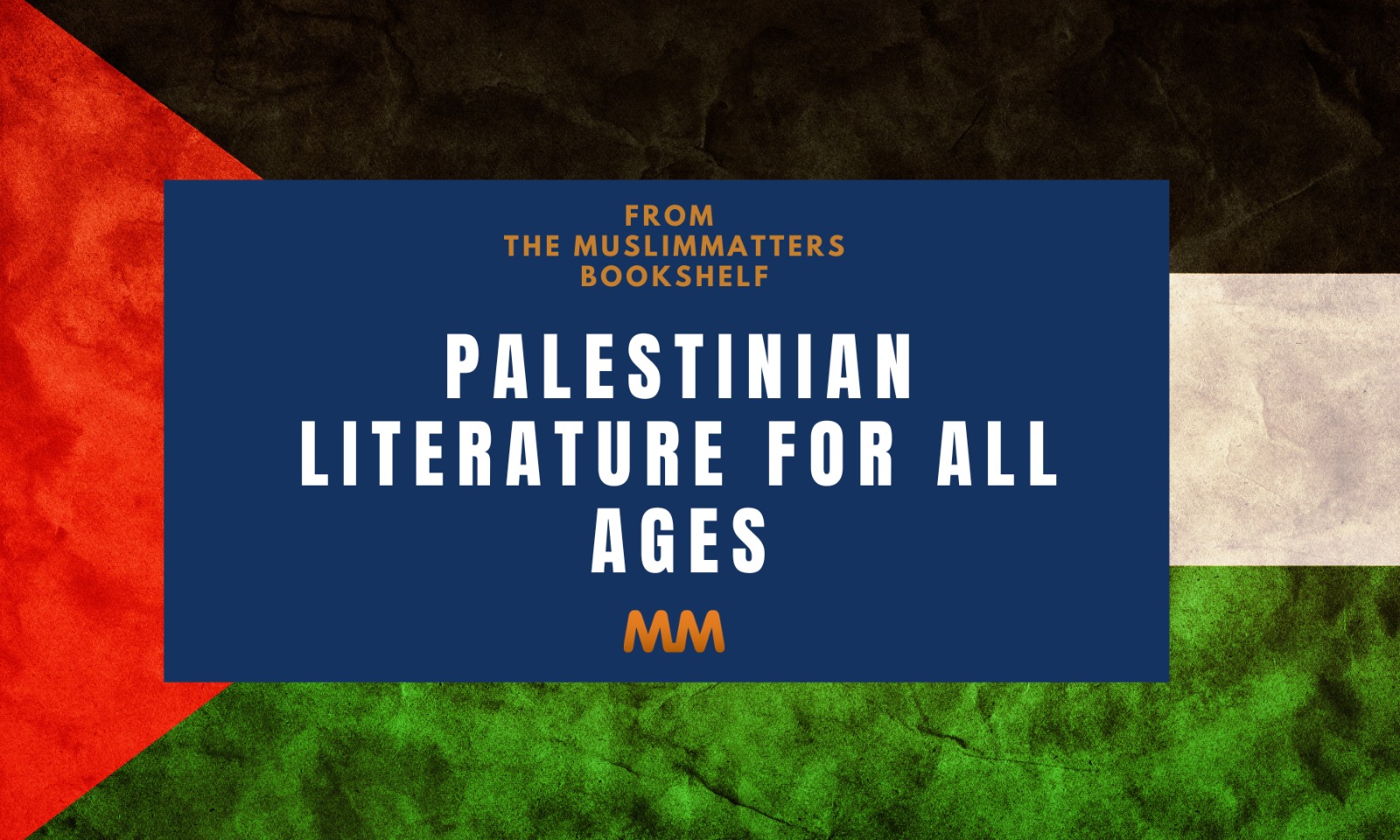
When mainstream media (mostly) suppresses Palestinian voices, when you don’t know how you can help, when you want to support out Palestinian brothers and sisters in occupied territories and in the diaspora – make du’a, donate, amplify your support and read Palestinian literature.
In this edition of the MuslimMatters Bookshelf, below we’ve listed a collection of books by Palestinians and those in the diaspora for all ages. Additionally, scroll to the end of the list for suggestions on bookish action items!
Picture Books
- Salim’s Soccer Ball by Tala El-Fehmawi and illustrated by Neveen Abu Saleem
In this story, Salim loses his soccer ball and embarks on a journey across his beautiful village in Palestine, learning lessons from members of his community along the way. Written in rhyme, this lyrical and insightful tale will be enjoyed by children of all ages and adults alike
Keep supporting MuslimMatters for the sake of Allah
Alhamdulillah, we're at over 850 supporters. Help us get to 900 supporters this month. All it takes is a small gift from a reader like you to keep us going, for just $2 / month.
The Prophet (SAW) has taught us the best of deeds are those that done consistently, even if they are small. Click here to support MuslimMatters with a monthly donation of $2 per month. Set it and collect blessings from Allah (swt) for the khayr you're supporting without thinking about it.
The beautiful illustrations in this book feature key elements of Palestinian culture including tatreez and local agriculture. Complete with a discussion guide, this book is a valuable educational tool for teaching children about Palestinian heritage and the importance of helping one’s neighbors.
- Baba, What Does My Name Mean? By Rifk Ebeid
When Saamidah, a young Palestinian refugee, is asked by her friends what her name means, she isn’t quite sure what to say. She turns to her baba for some answers – but what she gets is an adventure beyond her wildest dreams. Join Saamidah on a lyrical journey, with dazzling illustrations, that brings to life her beloved homeland and celebrates the richness of her cultural heritage and the determination to return.
- Sitti’s Bird: A Gaza Story by Malak Mattar

Sitti’s Bird: A Gaza Story is a unique children’s picture book, written and illustrated by Palestinian artist, Malak Mattar. Reflecting her experiences of childhood in occupied Palestine, Malak’s story brings warmth and wonder to children as it tells of her rebirth as an artist during the 2014 airstrikes on Gaza. It is the story of a young girl whose love for her family and discovery of art help her channel her fears and overcome traumas that few of us can imagine—traumas shared by countless children in Gaza and around the world.
- These Olive Trees by Ayah Ghanameh
It’s 1967 in Nablus, Palestine.
Oraib loves the olive trees that grow outside the refugee camp where she lives. Each harvest, she and her mama pick the small fruits and she eagerly stomp stomp stomps on them to release their golden oil. Olives have always tied her family to the land, as Oraib learns from the stories Mama tells of a home before war.
But war has come to their door once more, forcing them to flee. Even as her family is uprooted, Oraib makes a solemn promise to her beloved olive trees. She will see to it that their legacy lives on for generations to come.
- Sitti’s Secrets by Naomi Shihab Nye
Mona’s grandmother, her Sitti, lives in a small Palestinian village on the other side of the earth. Once, Mona went to visit her.
They couldn’t speak each other’s language, so they made up their own. They learned about each other’s worlds, and they discovered each other’s secrets. Then it was time for Mona to go back home, back to the other side of the earth. But even though there were millions of miles and millions of people between them, they remained true neighbors forever.
- Sitti’s Key: A Children’s Book About the Nakba by Sahar Khader Ali
Sitti tells her story of how she and thousands of Palestinians were forced from their homes by the Israelis in 1948, a tragic event remembered as the Nakba, the catastrophe.
This gentle yet important story about the importance of heritage, history, and belonging can be enjoyed by children aged 5 and above.
- You are the Color by Rifk Ebeid
After a frightening expulsion from his homeland, Thaer’s world is suddenly filled with a lot of darkness. You Are The Color is an evocative story about the Palestinian refugee experience during al-Nakba, or “The Catastrophe,” of 1948. Follow Thaer as he discovers the power of art to transform grief into hope, and find out his secret to seeing color again.
- Secret Recipe Box by Helal Musleh
Maha’s grandma is moving from Palestine to Canada, and Maha can’t wait! Teta travels from far away with a box full of secret recipes and special memories.
Maha wants to keep them all for herself, but Teta’s kindness teaches her the value of sharing and the joy of connecting with loved ones.
- My Garden Over Gaza by Sarah Musa
Noura is a strong young lady, diligently caring for her little brother, Esam, and for her father’s rooftop garden. But life in Gaza is hard even for the young.
Can Noura keep working with all her heart even after losing the thing she loves the most?
- Homeland: My Father Dreams of Palestine by Hannah Moushabeck
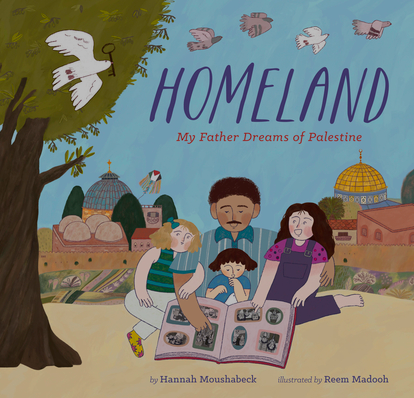
As bedtime approaches, three young girls eagerly await the return of their father who tells them stories of a faraway homeland-Palestine. Through their father’s memories, the Old City of Jerusalem comes to life: the sounds of street vendors beating rhythms with brass coffee cups, the smell of argileh drifting through windows, and the sight of doves flapping their wings toward home. These daughters of the diaspora feel love for a place they have never been, a place they cannot go. But, as their father’s story comes to an end, they know that through his memories they will always return.
A Palestinian family celebrates the stories of their homeland in this moving autobiographical picture book debut by Hannah Moushabeck. With heartfelt illustrations by Reem Madooh, this story is a love letter to home, to family, and to the persisting hope of people that transcends borders.
- The Olive Tree Said to Me by N. Salem
“The olive trees grow each year, just waiting to discover the magic within their growth. Waiting, for the next time to occur again…”
Discover the beauty of Palestine through a young girl’s journey as she learns the tradition of the olive harvest. A tradition that continues between each generation to maintain the roots of the Palestinian community. Alia shows the beauty of the harvest and learns the importance of the olive tree harvest through her life.
- Zain and Mima Stand for Palestine by Eman Kourtan [non-Palestinian author]
Zain and Mima were surprised to hear loud voices outside their window.
They found a crowd of people chanting “Free Palestine!”.
“What is Palestine?” they asked. To answer, Mama took them back in time with a story that began many years ago.
This book is a wonderful, age-appropriate way to explain the history of the illegal occupation of Palestine, and what it means to stand up for Palestine’s freedom, to children.
Middle Grade & Young Adult
- Where the Streets Had a Name by Randa Abdel Fattah
Thirteen-year-old Hayaat is on a mission. She believes a handful of soil from her grandmother’s ancestral home in Jerusalem will save her beloved Sitti Zeynab’s life. The only problem is the impenetrable wall that divides the West Bank, as well as the checkpoints, the curfews, the permit system, and Hayaat’s best friend Samy, who is mainly interested in football and the latest elimination on X-Factor, but always manages to attract trouble.
But luck is on their side. Hayaat and Samy have a curfew-free day to travel to Jerusalem. However, while their journey may only be a few kilometers long, it may take a lifetime to complete.
- [Graphic novel] Baddawi by Leila Abdelrazaq
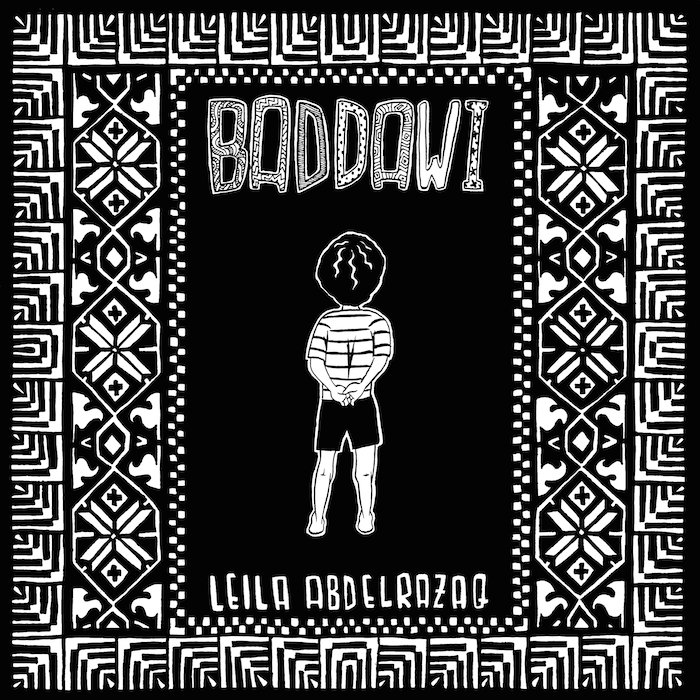
In this visually arresting graphic novel, Leila Abdelrazaq explores her father’s childhood in the 1960s and ’70s from a boy’s eye view as he witnesses the world crumbling around him and attempts to carry on, forging his own path in the midst of terrible uncertainty.
- [Non-fiction] Tasting the Sky: A Palestinian Childhood by Ibtisam Barakat
In this groundbreaking memoir set in Ramallah during the aftermath of the 1967 Six-Day War, Ibtisam Barakat captures what it is like to be a child whose world is shattered by war. With candor and courage, she stitches together memories of her childhood: fear and confusion as bombs explode near her home and she is separated from her family; the harshness of life in the Middle East as a Palestinian refugee; her unexpected joy when she discovers Alef, the first letter of the Arabic alphabet.
This is the beginning of her passionate connection to words, and as language becomes her refuge, allowing her to piece together the fragments of her world, it becomes her true home.
- [Non-fiction] Young Palestinians Speak: Living Under Occupation by AnneMarie Young
In Palestine today, a second generation of children and young people is growing up experiencing life under occupation. These are children who know only fear when they see an Israeli soldier or come across a roadblock. This book provides a platform for young people, from all over this occupied land, to speak in their own voices about the day-to-day experience of living under occupation.
Adult Fiction
- The Beauty of Your Face by Sahar Mustafah
The Beauty of Your Face tells a uniquely American story in powerful, evocative prose.
Afaf Rahman, the daughter of Palestinian immigrants, is the principal of a Muslim school in the Chicago suburbs. One morning, a shooter—radicalized by the online alt-right—attacks the school. As Afaf listens to his terrifying progress, we are swept back through her memories, and into a profound and “moving” (Bustle) exploration of one woman’s life in a nation at odds with its ideals.
- A Woman Is No Man by Etaf Rum
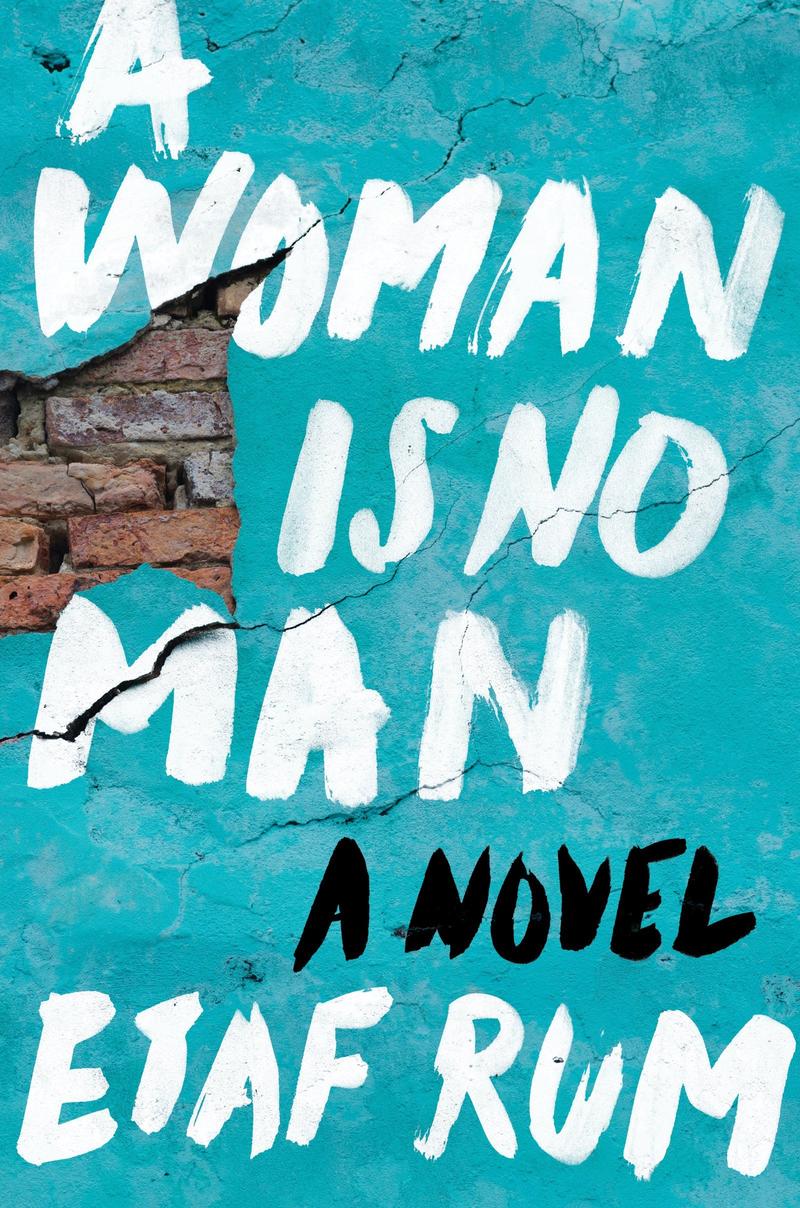
Brooklyn, 2008. Eighteen-year-old Deya, Isra’s oldest daughter, must meet with potential husbands at her grandmother Fareeda’s insistence, though her only desire is to go to college. Deya can’t help but wonder if her options would have been different had her parents survived the car crash that killed them when Deya was only eight. But her grandmother is firm on the matter: the only way to secure a worthy future for Deya is through marriage to the right man.
But fate has a will of its own, and soon Deya will find herself on an unexpected path that leads her to shocking truths about her family—knowledge that will force her to question everything she thought she knew about her parents, the past, and her own future.
- Salt Houses by Hala Alyan
On the eve of her daughter Alia’s wedding, Salma reads the girl’s future in a cup of coffee dregs. She sees an unsettled life for Alia and her children; she also sees travel and luck. While she chooses to keep her predictions to herself that day, they will all soon come to pass when the family is uprooted in the wake of the Six-Day War of 1967.
Salma is forced to leave her home in Nablus; Alia’s brother gets pulled into a politically militarized world he can’t escape; and Alia and her gentle-spirited husband move to Kuwait City, where they reluctantly build a life with their three children. When Saddam Hussein invades Kuwait in 1990, Alia and her family once again lose their home, their land, and their story as they know it, scattering to Beirut, Paris, Boston, and beyond. Soon Alia’s children begin families of their own, once again navigating the burdens (and blessings) of assimilation in foreign cities.
- Palestine’s Children: Returning to Haifa and Other Stories by Ghassan Kanafani
Politics and the novel, Ghassan Kanafani once said, are an indivisible case. Fadl al-Naqib has reflected that Kanafani wrote the Palestinian story, then he was written by it. His narratives offer entry into the Palestinian experience of the conflict that has anguished the people of the Middle East for more than a century.
In Palestine’s Children, each story involves a child who is victimized by political events and circumstances, but who nevertheless participates in the struggle toward a better future.
As in Kanafani’s other fiction, these stories explore the need to recover the past and the lost homeland by action. At the same time, written by a major talent, they have a universal appeal.
- Men in the Sun & Other Palestinian Stories by Ghassan Kanafani
This collection of important stories by novelist, journalist, teacher, and Palestinian activist Ghassan Kanafani includes the stunning novella Men in the Sun (1962), the basis of The Deceived. Also in the volume are “The Land of Sad Oranges” (1958), “‘If You Were a Horse…'” (1961), “A Hand in the Grave” (1962), “The Falcon” (1961), “Letter from Gaza” (1956), and an excerpt from Umm Saad (1969).
In the unsparing clarity of his writing, Kanafani offers the reader a gritty look at the agonized world of Palestine and the adjoining Middle East.
- Jasmine Falling by Shereen Malherbe
When Jasmine’s mother dies inside their English mansion, hope comes in the form of her multi-million-pound inheritance. But with her inheritance threatened, Jasmine is left to contemplate a future she does not know how to live.
Jasmine has only ten days to uncover the circumstances of her father’s decade-long disappearance before her fortune is lost forever. Forced to return to his homeland in Palestine, she follows his footsteps through stories long ingrained in the local’s minds. She is helped on her journey by a mysterious stranger who guides her through the trails of the Holy Land to the scattered broken villages, each harboring its own secrets.
Under the watchful eyes of the ever-encroaching Occupation, Jasmine must piece together her history in the broken land, before it destroys her future.
Adult Non-fiction
- They Called Me a Lioness: A Palestinian Girl’s Fight for Freedom by Ahed Tamimi and Dena Takruri
Ahed Tamimi is a world-renowned Palestinian activist, born and raised in the small West Bank village of Nabi Saleh, which became a center of the resistance to Israeli occupation when an illegal, Jewish-only settlement blocked off its community spring. Tamimi came of age participating in nonviolent demonstrations against this action and the occupation at large. Her global renown reached an apex in December 2017, when, at sixteen years old, she was filmed slapping an Israeli soldier who refused to leave her front yard. The video went viral, and Tamimi was arrested.
But this is not just a story of activism or imprisonment. It is the human-scale story of an occupation that has riveted the world and shaped global politics, from a girl who grew up in the middle of it. Tamimi’s father was born in 1967, the year that Israel began its occupation of the West Bank and he grew up immersed in the resistance movement. One of Tamimi’s earliest memories is visiting him in prison, poking her toddler fingers through the fence to touch his hand. She herself would spend her seventeenth birthday behind bars. Living through this greatest test and heightened attacks on her village, Tamimi felt her resolve only deepen, in tension with her attempts to live the normal life of a daughter, sibling, friend, and student.
An essential addition to an important conversation, They Called Me a Lioness shows us what is at stake in this struggle and offers a fresh vision for resistance. With their unflinching, riveting storytelling, Ahed Tamimi and Dena Takruri shine a light on humanity not just in occupied Palestine but also in the unsung lives of people struggling for freedom around the world.
- Justice for Some by Noura Erakat
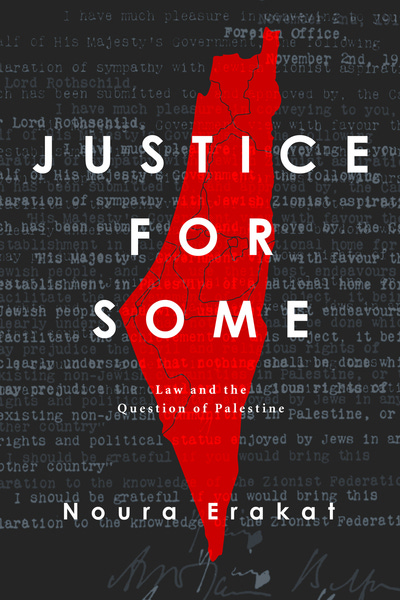
Justice for Some offers a new approach to understanding the Palestinian struggle for freedom, told through the power and control of international law. Focusing on key junctures—from the Balfour Declaration in 1917 to present-day wars in Gaza—Noura Erakat shows how the strategic deployment of law has shaped current conditions. Over the past century, the law has done more to advance Israel’s interests than the Palestinians’. But, Erakat argues, this outcome was never inevitable.
Law is politics, and its meaning and application depend on the political intervention of states and people alike. Within the law, change is possible. International law can serve the cause of freedom when it is mobilized in support of a political movement. Presenting the promise and risk of international law, Justice for Some calls for renewed action and attention to the Question of Palestine.
- In My Mother’s Footsteps: A Palestinian Refugee Returns Home by Mona Hajjar Halaby
When Mona moved from California to Ramallah to teach conflict resolution in a school for a year, she kept a journal. Within its pages, she wrote her impressions of her homeland, a place she had only experienced through her mother’s memories.
As she settled into her teaching role, getting to know her students and the challenges they faced living in a militarized, occupied town, Mona also embarked on a personal pilgrimage to find her mother’s home in Jerusalem.
Mona had dreamed of being guided by her mother down the old souqs, and the leafy streets of her neighborhood, listening to the muezzin’s call for prayer and the medley of church bells. But after fifty-nine years of exile, it was Mona’s mother who held her daughter’s hand as they visited Jerusalem together, walking the narrow cobblestone alleys of the Old City. Their roles were reversed. Mona had become her Mama’s legs and her memory – and the one to tell her story going forward.
- The Hundred Years’ War on Palestine by Rashid Khalidi
In 1899, Yusuf Diya al-Khalidi, mayor of Jerusalem, alarmed by the Zionist call to create a Jewish national home in Palestine, wrote a letter aimed at Theodore Herzl: the country had an indigenous people who would not easily accept their own displacement. He warned of the perils ahead, ending his note, “in the name of God, let Palestine be left alone.” Thus Rashid Khalidi, al-Khalidi’s great-great-nephew, begins this sweeping history, the first general account of the conflict told from an explicitly Palestinian perspective.
Drawing on a wealth of untapped archival materials and the reports of generations of family members—mayors, judges, scholars, diplomats, and journalists—The Hundred Years’ War on Palestine upends accepted interpretations of the conflict, which tend, at best, to describe a tragic clash between two peoples with claims to the same territory. Instead, Khalidi traces a hundred years of colonial war on the Palestinians, waged first by the Zionist movement and then Israel, but backed by Britain and the United States, the great powers of the age. He highlights the key episodes in this colonial campaign, from the 1917 Balfour Declaration to the destruction of Palestine in 1948, from Israel’s 1982 invasion of Lebanon to the endless and futile peace process.
Original, authoritative, and important, The Hundred Years’ War on Palestine is not a chronicle of victimization, nor does it whitewash the mistakes of Palestinian leaders or deny the emergence of national movements on both sides. In reevaluating the forces arrayed against the Palestinians, it offers an illuminating new view of a conflict that continues to this day.
- The Question of Palestine by Edward Said
With the rigorous scholarship he brought to his influential Orientalism and an exile’s passion (he is Palestinian by birth), Edward W. Said traces the fatal collision between two peoples in the Middle East and its repercussions in the lives of both the occupier and the occupied–as well as in the conscience of the West. He has updated this landmark work to portray the changed status of Palestine and its people in light of such developments as the Israeli invasion of Lebanon, the intifada, the Gulf War, and the ongoing Middle East peace initiative.
- The Ethnic Cleansing of Palestine by Ilan Pappe
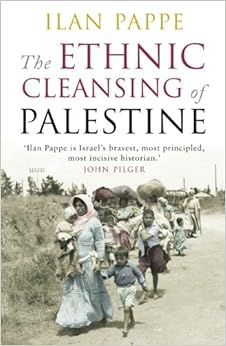
Denied for almost six decades, had it happened today it could only have been called “ethnic cleansing”. Decisively debunking the myth that the Palestinian population left of their own accord in the course of this war, Ilan Pappe offers impressive archival evidence to demonstrate that, from its very inception, a central plank in Israel’s founding ideology was the forcible removal of the indigenous population. Indispensable for anyone interested in the current crisis in the Middle East.
- Ten Myths About Israel by Ilan Pappe
In this groundbreaking book, published on the fiftieth anniversary of the Occupation, the outspoken and radical Israeli historian Ilan Pappe examines the most contested ideas concerning the origins and identity of the contemporary state of Israel.
The “ten myths” that Pappe explores—repeated endlessly in the media, enforced by the military, accepted without question by the world’s governments—reinforce the regional status quo. He explores the claim that Palestine was an empty land at the time of the Balfour Declaration, as well as the formation of Zionism and its role in the early decades of nation-building. He asks whether the Palestinians voluntarily left their homeland in 1948, and whether June 1967 was a war of “no choice.” Turning to the myths surrounding the failures of the Camp David Accords and the official reasons for the attacks on Gaza, Pappe explains why the two-state solution is no longer viable.
- I Saw Ramallah by Mourid Barghouti
Barred from his homeland after 1967’s Six-Day War, the poet Mourid Barghouti spent thirty years in exile—shuttling among the world’s cities, yet secure in none of them; separated from his family for years at a time; never certain whether he was a visitor, a refugee, a citizen, or a guest. As he returns home for the first time since the Israeli occupation, Barghouti crosses a wooden bridge over the Jordan River into Ramallah and is unable to recognize the city of his youth.
Sifting through memories of the old Palestine as they come up against what he now encounters in this mere “idea of Palestine,” he discovers what it means to be deprived not only of a homeland but of “the habitual place and status of a person.”
- Under the Nakba Tree by Mowafa Said Househ
Mowafa Said Househ’s family fled Palestine in 1948 and arrived in Canada in the 1970s. He spent his childhood in Edmonton, Alberta, where he grew up as a visible minority and a Muslim whose family had a deeply fractured history. In the year 2000, when Househ visited his family’s homeland of Palestine at the beginning of the Second Intifada, he witnessed the effects of prolonged conflict and occupation. It was those observations and that experience that inspired him not only to tell his story but to realize many of the intergenerational and colonial traumas that he shares with the Indigenous people of Turtle Island.
This moving memoir depicts the lives of those who live on occupied land and the struggles that define them.
Poetry
- Rifqa by Mohammed El-Kurd
Each day after school, Mohammed El-Kurd’s grandmother welcomed him at the door of his home with a bouquet of jasmine. Her name was Rifqa—she was older than Israel itself and an icon of Palestinian resilience. With razor-sharp wit and glistening moral clarity, El-Kurd lays bare the brutality of Israeli settler colonialism. His poems trace Rifqa’s exile from Haifa to his family’s current dispossession in Sheikh Jarrah, Jerusalem, exposing the cyclical and relentless horror of the Nakba.
El-Kurd’s debut collection definitively shows that the Palestinian struggle is a revolution, until victory.
- In the Presence of Absence by Mahmoud Darwish
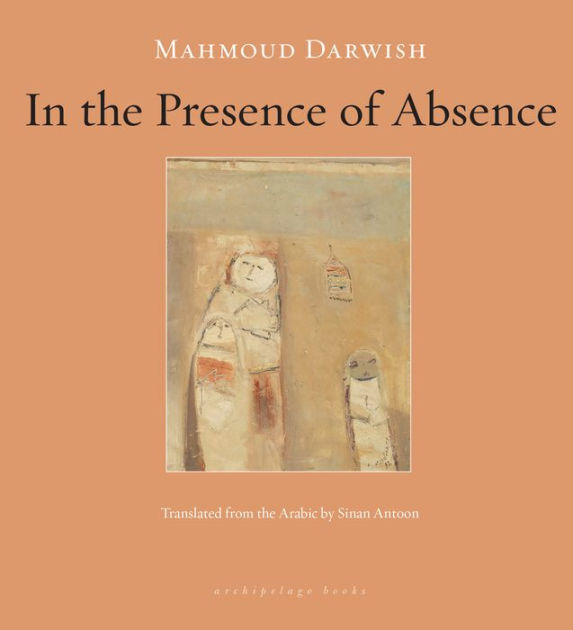
In stunning language, Darwish’s self-elegy inhabits a rare space where opposites bleed and blend into each other. Prose and poetry, life and death, home and exile are all sung by the poet and his other. On the threshold of im/mortality, the poet looks back at his own existence, intertwined with that of his people.
Through these lyrical meditations on love, longing, Palestine, history, friendship, family, and the ongoing conversation between life and death, the poet bids himself and his readers a poignant farewell.
- Things You May Find Hidden in My Ear: Poems from Gaza by Mosab Abo Taha
These poems emerge directly from the experience of growing up and living one’s entire life in Gaza, making a life for one’s family and raising a family in constant lockdown, and often under direct attack.
In this poetry debut, conceived during the Israeli bombing campaign of May 2021, Mosab Abu Toha writes about his life under siege, first as a child, and then as a young father. A survivor of four brutal military attacks, he bears witness to a grinding cycle of destruction and assault, and yet, his poetry is inspired by a profoundly universal humanity.
In direct, vivid language, Abu Toha tells of being wounded by shrapnel at the age of 16 and, a few years later, watching his home and his university get hit by IDF warplanes in a bombing campaign that killed two of his closest friends. These poems are filled with rubble and the ever-present menace of surveillance drones policing a people unwelcome in their own land, and they are also suffused with the smell of tea, roses in bloom, and the view of the sea at sunset. Children are born, families continue traditions, students attend university, and libraries rise from the ruins as Palestinians go on about their lives, creating beauty and finding new ways to survive.
Bookish Action Items
- Storytimes
Organize a story time at your local library, masjid, or community center! With the variety of Palestinian kid lit available, there are plenty of books to choose from. Story times are an excellent way to share age-appropriate information and ways of connecting big ideas to younger children. To make a Palestine-themed story time extra special, think about including Palestinian snacks, and coloring sheets, and make sure to give an opportunity for little ones to ask questions!
- Call Your Local Bookstore
Call up your local bookstores to ask them to stock Palestinian literature titles. Get other people in your locale to also call the bookstores so that they see there is a demand – and then make sure to actually purchase the books! This will demonstrate that there is not only a demand for these books, but also follow-up in the books being bought.
Also, ask for a book display featuring Palestinian literature! Many independent bookstores will be more open to this than major companies such as Indigo Canada (whose owners run a scholarship fund to send Zionists to Israel for military combat).
- Start a Book Club
Choose a #PalestinianVoices book and start a book club, in person or online! It is important to encourage people not just to passively consume with literature, but to actively engage with the content of these books. Book clubs can be an opportunity to educate, to ask questions, to learn more, and to increase in awareness. This can be especially valuable for kids in middle school, high school, and college.
- Support Palestinian Authors
Support Palestinian authors by purchasing their books, following their social media, sharing information about their books with others, and finding opportunities to highlight their work.
Share your own bookish action items below!
– Related reading
Keep supporting MuslimMatters for the sake of Allah
Alhamdulillah, we're at over 850 supporters. Help us get to 900 supporters this month. All it takes is a small gift from a reader like you to keep us going, for just $2 / month.
The Prophet (SAW) has taught us the best of deeds are those that done consistently, even if they are small. Click here to support MuslimMatters with a monthly donation of $2 per month. Set it and collect blessings from Allah (swt) for the khayr you're supporting without thinking about it.
Zainab bint Younus (AnonyMouse) is a Canadian Muslim woman who writes on Muslim women's issues, gender related injustice in the Muslim community, and Muslim women in Islamic history. She holds a diploma in Islamic Studies from Arees University, a diploma in History of Female Scholarship from Cambridge Islamic College, and has spent the last fifteen years involved in grassroots da'wah. She was also an original founder of MuslimMatters.org.


Nationalism And Its Kurdish Discontents [Part I of II]: Kurds In An Ottoman Dusk

Moonshot [Part 10] – The Marco Polo

Moonshot [Part 9] – A Religion For Real Life

Genocidal Israel Escalates With Assault On Iran

Relief Convoys To Gaza Expose Discrepancy Between Society And State

Moonshot [Part 9] – A Religion For Real Life

Moonshot [Part 10] – The Marco Polo

Moonshot [Part 8] – The Namer’s House

Moonshot [Part 7] – The Abyss Stares Back

Moonshot [Part 6] – Down These Mean Streets

[Dhul Hijjah Series] Calling Upon the Divine: The Art of Du’a (Part 1)

IOK Ramadan 2025: Four Steps | Sh Zaid Khan

IOK Ramadan 2025: Do Your Best | Sh Zaid Khan

IOK Ramadan 2025: Giving Preference to Others | Sh Zaid Khan



Aisha
November 22, 2023 at 12:05 PM
This an excellent list of books especially the ones the young adult section! I will definitely be checking some these out. However, I was surprised that P is for Palestine by Golbarg Bashi was not included. I Know that Golbarg Bashi is a secular Iranian of Mulim heritage who teaches at Pace University. But this book should be included anyway. A.B.C books are great for little kids! And there are few related to Muslim countries so good for any Islamic school library and any library to have. Also, the local Israel lobby here in NYC attempted to ban public readings of it in bookstores. Otherwise, this is an excellent list.